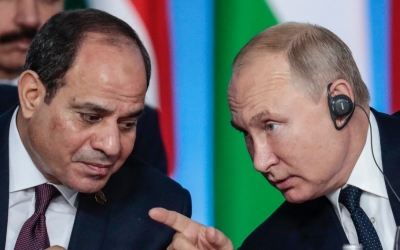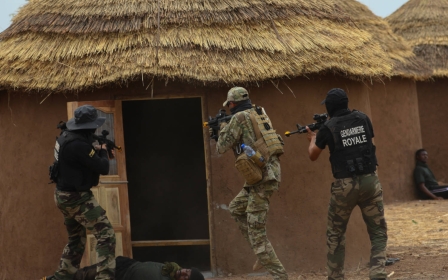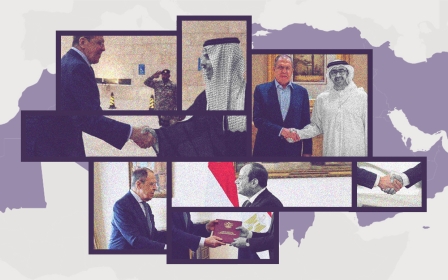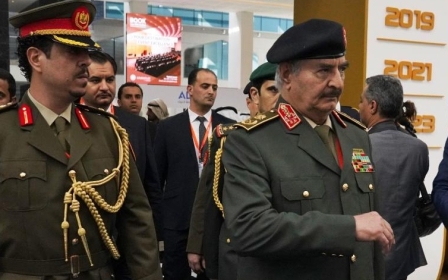Russia's Wagner mercenaries purchased grenade launchers from Syria: Report
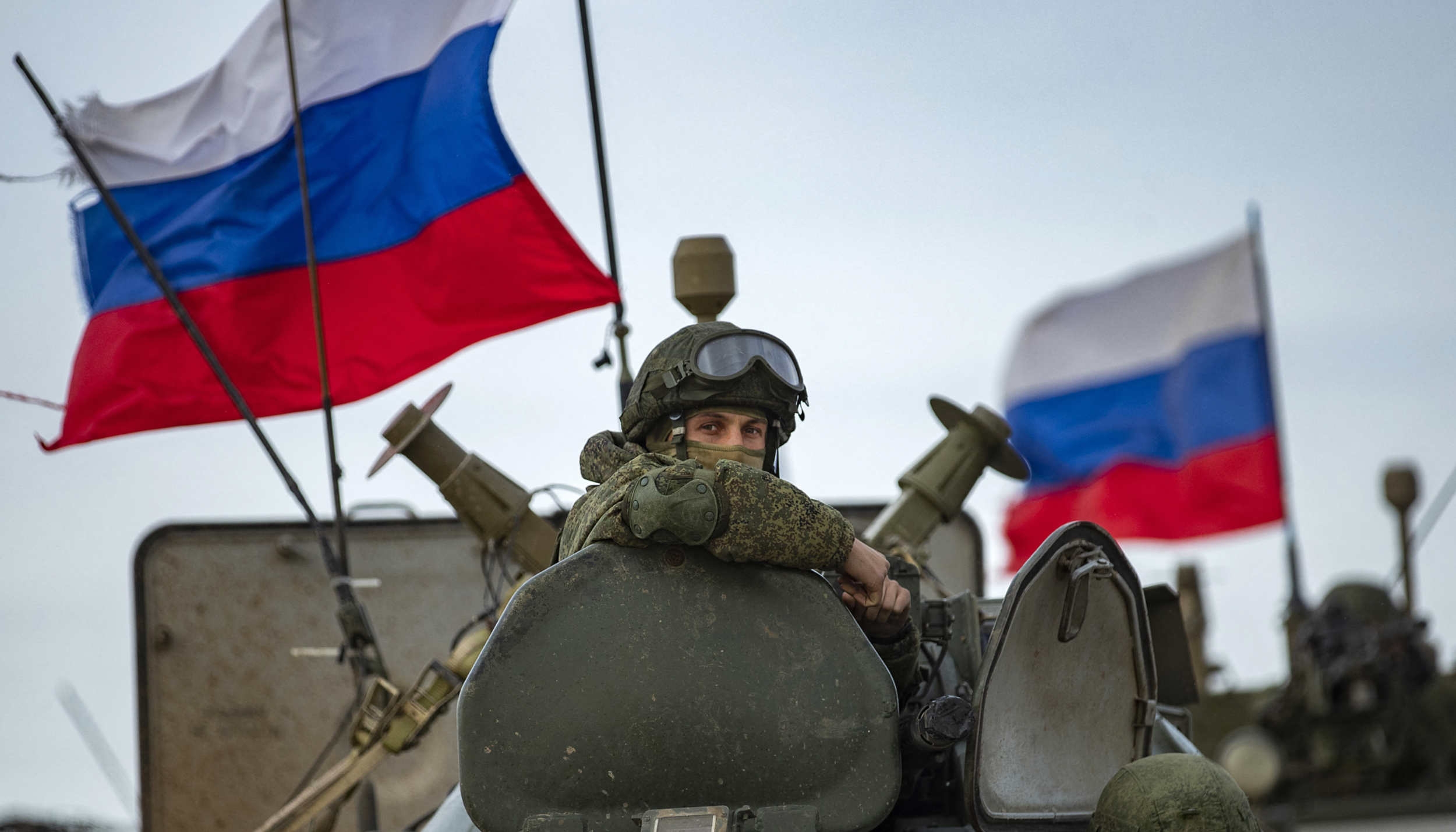
The Russian paramilitary group Wagner purchased weapons from Kremlin ally Syria, leaked Pentagon documents reveal, in a twist that underscores how the war in Ukraine has scrambled the region’s arms trade.
The mercenary group purchased six SPG-9 grenade launchers and 180 grenades in Syria at an unspecified time, the Financial Times reported on Thursday, citing a previously unseen leaked document. Wagner representatives were “uncertain where they would be sent beyond Syria”, the report added.
The New York Times reported earlier this month that Wagner representatives met with "Turkish contacts” in February to explore weapons purchases that would use Mali as a transit destination.
The document provided fresh details about those discussions as well, claiming that Wagner emissaries in Ankara tried to purchase drones, electronic warfare systems, counter-battery systems, and howitzer artillery.
But Wagner's “Turkish contacts” said they could not export some of the requested arms, like the howitzers, counter-battery systems and some counter-drone weapons.
New MEE newsletter: Jerusalem Dispatch
Sign up to get the latest insights and analysis on Israel-Palestine, alongside Turkey Unpacked and other MEE newsletters
Wagner is led by Yevgeny Prigozhin, a close associate of Vladimir Putin. Although the group has been at the forefront of Moscow’s efforts to take the besieged Ukrainian city of Bakhmut, Prigozhin has accused members of Russia’s military establishment of depriving his forces of arms and other supplies.
Syria was one of Wagner's first forays outside Europe. The group deployed mercenaries to fight alongside the forces of Bashar al-Assad in 2015, at the same time Putin launched an air campaign in support of Damascus.
The Middle Eastern country is one of the only publicly documented conflict zones where US forces directly engaged Wagner fighters. In 2018, the US military killed between 200 to 300 pro-Assad fighters, many of which were assumed to be Wagner mercenaries, after they assaulted a US military outpost in eastern Syria.
Syria is a linchpin for Moscow's projection of regional power. Russia has strategic access to the Eastern Mediterranean through its naval base in Tartus. Meanwhile, companies linked to Wagner have obtained lucrative stakes in oil and gas deposits in territory formally controlled by the Islamic State militant group.
Despite sending fighters to conflicts in Libya, Sudan and the Central African Republic, Wagner remained shrouded in mystery until Russia’s invasion of Ukraine, when Prigozhin switched from denying the group’s very existence to publicly trumpeting it as Russia’s most effective fighting force.
Besides shedding light on the ties between Syria and Wagner, the leaked document underlines how fighting in Ukraine has stretched Russia’s defence industry.
The Middle East was once a key export market for Russian arms, but the tables have turned on Moscow with countries like Iran supplying them with armed drones.
While Russia’s diplomatic and economic ties to the region have endured, and in some cases expanded, arms sales are the one area where analysts say the war in Ukraine has damaged Russian prospects.
MEE reported last year that Russia had to delay servicing Middle Eastern arms clients because of supply shortages.
Russia put on a big show at the IDEX arms fair in Abu Dhabi, UAE, earlier this year, but there was scant evidence of new deals being signed.
Last year, Egypt even backed out of its planned purchase of Russia's Su-35 fighter jet, opting to buy the US F-15 instead.
Moscow’s poor military performance in Ukraine has been particularly devastating for Russia in the rich Gulf market, Cinzia Bianco, a visiting fellow at the European Council on Foreign Relations, told MEE previously.
"The lack of quality of Russian weapons systems has been exposed to GCC capitals. There is a clear decline in interest among GCC countries for Russian military gear. They are doubling down on Nato weaponry," she said.
Middle East Eye delivers independent and unrivalled coverage and analysis of the Middle East, North Africa and beyond. To learn more about republishing this content and the associated fees, please fill out this form. More about MEE can be found here.


